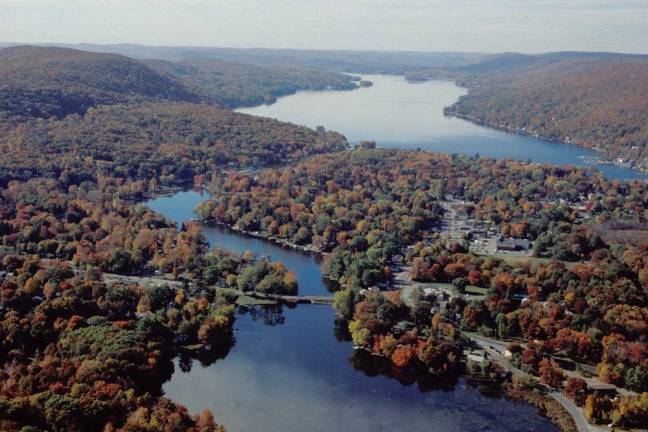Lake funding bill OK’d by Senate panel
NEW JERSEY. Governor signs law that allows special social events to be held on preserved farmland.

The state Senate Environment and Energy Committee has approved bipartisan legislation, sponsored by Republican Sens. Joe Pennacchio, Anthony Bucco and Steven Oroho, to fund work at Lake Hopatcong, Greenwood Lake, and other lakes in the Highlands and Pinelands regions.
The bill (S-2246), also sponsored by Sen. Vin Gopal, D-11, makes a one-time supplemental appropriation of $17 million for fiscal year 2024 to the Department of Environmental Protection (DEP) from the General Fund. The bill directs the DEP to establish a program to use these funds for grants to assist qualified entities to pay costs associated with the management and maintenance of lakes for recreation and conservation purposes.
“Our lakes are critical to the ecological and economic well-being of New Jersey, but they have been consistently underfunded by the state,” said Pennacchio, R-26. “This appropriation represents the most significant investment in Lake Hopatcong and Greenwood Lake in recent memory, if not ever. This one-time infusion will ensure our lakes get the vital support they need.”
The DEP would be required to develop a process for evaluating and ranking applications for grants, with priority given to projects improving water quality and increasing recreational access, including efforts to control nutrient levels in lakes to prevent harmful algal blooms.
The bill also provides funding for projects in the Highlands Region and Pinelands area in recognition of the critical role that lakes in those ecologically significant locations provide in supplying drinking water to residents throughout the state, watershed protection, and for recreation and conservation purposes.
“Lake Hopatcong and Greenwood Lake are two of the most important destinations for summer recreation in northern New Jersey, so it’s important we guarantee them a significant level of funding,” said Bucco, R-25. “This money will help these lakes address algal blooms and weed proliferation that have threatened both boating and swimming for many years. It’s my hope that this appropriation is just the first step in securing recurring state funding for the future needs of our lakes.”
Oroho, R-24, said, “Our lake communities have been devastated in back-to-back years by the financial impact of algal blooms and the coronavirus pandemic. After they’ve suffered so much, it is even more critical that the state step up to meet the need. With this substantial appropriation, we will help these important lakes remain healthy and open to the public.”
In the 2020-21 legislative session, Pennacchio, Bucco, and Oroho sponsored a similar measure that appropriated $10 million to the DEP for the same purpose.
Farms may host events
Earlier this month, Gov. Phil Murphy signed bipartisan legislation, sponsored by Oroho, that permits special social events on preserved farmland.
“Our heritage as the ‘Garden State’ goes back hundreds of years, and our farming tradition is still thriving in many families and communities throughout the state,” Oroho said. “In addition to growing fruits, vegetables and grains, our farms can also be used for wedding ceremonies and many other special events.
“This bill, now law, will provide an economic benefit to farmers, preserve important farmland and showcase New Jersey’s rich agricultural legacy.”
New Jersey’s Farmland Preservation Program has preserved more than 2,600 farms, covering more than 236,000 acres. That is about one of every three acres of farmland in the state.
When farms are preserved, the right to use and develop the land for nonagricultural purposes is permanently extinguished.
The law authorizes special social events at certain farms on preserved farmland. Events can be weddings, music, lifetime milestone events, or other cultural or social gatherings.
The number of special-occasion events that can be held would be limited based on the economic output of the farm. A commercial farm that produces agricultural or horticultural products worth between $10,000 and $100,000 annually may hold up to 15 events a year. A farm that produces products worth $100,000 or more may hold up to 26 events a year.
All special-occasion events would have to be applied for and receive approval from the State Agriculture Development Committee.